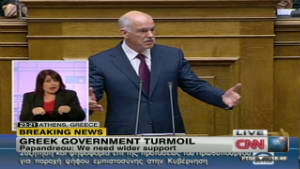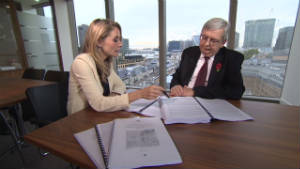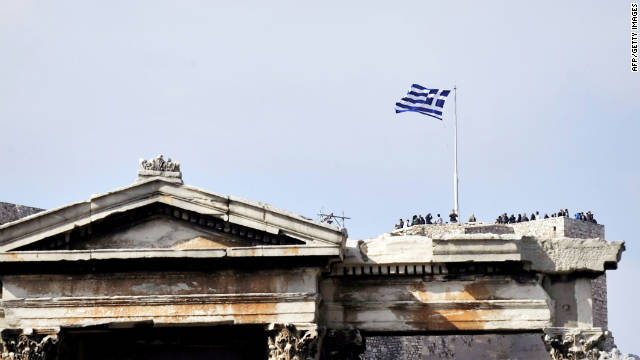Greece focuses on forming coalition government as uncertainty lingers
November 6, 2011 -- Updated 0602 GMT (1402 HKT)
Greek PM survives confidence vote
STORY HIGHLIGHTS
- Embattled Greek prime minister begins steps to form a unity government
- It is unclear who will lead the new government
- The prresident has summoned party members ahead of a Cabinet meeting
(CNN) -- The Greek president meets all party leaders Sunday to help tackle the nation's economic and political turmoil as focus shifts to the formation of a coalition government tasked with saving the nation from bankruptcy.
Embattled Greek Prime Minister George Papandreou began steps to form a unity government Saturday, hours after narrowly winning a vote of confidence.
Papandreou started talks with smaller parties, and met with President Karolos Papoulias to seek permission to form a coalition.
The president summoned party members ahead of a Cabinet meeting set for Sunday.
The vote of confidence gives Greece's stricken economy some breathing room and may reassure international markets sent into a tailspin by political turmoil in the nation.
But many questions remain unanswered.
The main opposition party has showed little willingness to join the unity government, with leader Antonis Samaras making it clear he did not want to be part of a coalition.




In forming the new government, Papandreou's Socialist PASOK party will likely seek the support of smaller parties.
Samaras, who meets the president Sunday, has called for a transitional government for six weeks, followed by elections.
Though Papandreou won the confidence vote after announcing he would seek a coalition government, it was not immediately clear who would lead it.
Reports have named Finance Minister Evangelos Venizelos as a possible successor as caretaker prime minister.
Venizelos has called for a temporary government that would push through all the necessary legislation through February with elections likely to follow.
Papandreou said holding elections immediately would leave the latest bailout deal "up in the air."
Implementing the controversial bailout package reached October 26 is a priority, the prime minister said, to ensure Greece stayed in the euro, the single currency used by the 17 nations in the euro zone.
European leaders have warned they want Greece to stay in the euro, but saving the currency is more important.
The deal would wipe out 100 billion euros in Greek debt, half of what it owes. It comes with a promise of 30 billion euros from the public sector to help pay off some of the remaining debts, making the whole deal worth 130 billion euros ($178 billion).
But the package comes with strings that would require Greece to slash government jobs, privatize some businesses and reduce pensions.
Such austerity measures ran the risk of deepening Greece's recession, said Antonis Papagiannidis, editor of Greece's Economic Review.
Though Greece ranks 32nd in terms of gross domestic product, experts say it wields a disproportionate influence on world markets.
A Greek default could drag down larger European economies, in particular those of Italy and Spain, as well as struggling Portugal and Ireland, analysts warn.



Δεν υπάρχουν σχόλια:
Δημοσίευση σχολίου